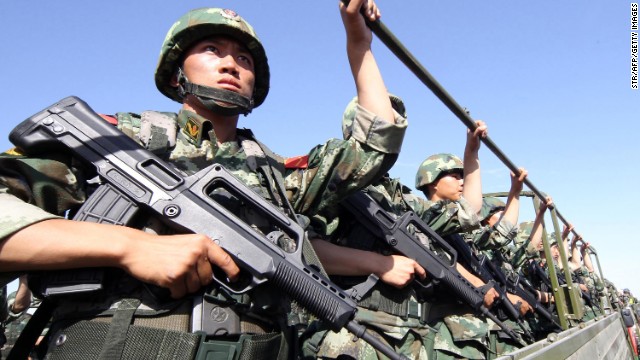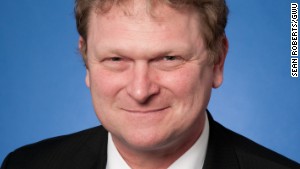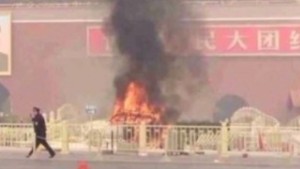FCT Minister, Senator Bala Mohammed
Sam Hart
Let me state from the beginning that I love Abuja. The city has been kind to me and of all the places I have visited and lived in, Abuja will always be home for me. I first moved into Abuja in 1999 and had cause to ‘step aside’ in 2003 to take up political appointment in Abia State. After working for 8 years straight in Abia State, I returned to Abuja in 2012. It is worthy of note that for the 8 years I was working in Abia State, I frequented Abuja almost on a weekly basis and it was inconceivable that a month would go by without me coming to Abuja. I always had a car parked in Abuja and I considered Abuja home.
That been said, let me delve into my treatise for the day which is an attempt to explain the story behind the many abandoned mansions in Abuja and the high cost of properties in Abuja. It will serve as a guide to those who are conducting a study on Abuja while also serving as an explanatory note to those who have never quite understood certain phenomena in Abuja.
And on that note, let us begin.
As soon as politicians resume elective or appointive offices in Abuja, they are exposed to all manner of schemes and deals, which ensure a steady flow of illicit cash that would make a puritan see received wisdom. The most religious of them all will balk at the sheer volume of money that is available to them for the taking and apparently without any consequence with criminal minded civil servants marshalling a convincing argument on the litany of examples of their predecessors who partook in the same scheme and are now living large and enjoying their loot. Pronto, our appointee signs up for the deal and the money starts rolling in.
You see, the amount of money we are talking about is difficult to just have lying around so the next thing is that they start seeking avenues of diversifying the steady inflow of cash. The easiest means of offloading excess cash in Abuja is via property acquisition. In Abuja, houses are sold for a minimum of N500 Million within the city centre. The more common price range is between N800 Million and N1.3 Billion. When these people are in government, they buy up these houses not because they need them but because they are seeking avenues of diversifying loose cash.
These same people, if you go to their accounts, you will not see more than Three Million Naira. That is how they play smart. They seldom buy the properties in their names. It is in the names of proxies, fronts and shell companies. They used to buy properties in the names of their children but that racket has been busted by EFCC and ICPC so they go for names that have absolutely no link whatsoever to them. Note that these scheme backfire sometimes. The proxies and fronts used in acquiring the properties sometimes become greedy and seek the conversion of those properties as everything is in their name. This often leads to protracted issues that ensure that the house remains uninhabited.
Soon after our appointee or senior civil servant leaves office, he runs out of liquid cash as the source has dried up yet he maintains the first class lifestyle he was used to while in office. The next option is to start selling all those properties they acquired while they held office so you see plenty ‘For Sale’ signs hung on numerous beautiful mansions all over Abuja. They start by trying to make a profit from the price at which they purchased it.
Then after 3 months, when nobody is interested, they drop the price to the price at which they bought the house and after another 3 months of no concrete offer, they drop the price further thus, the house will be on the market for years. Smart property speculators have made a huge killing out of goading these has-beens on until they end up selling the property in question for a fraction of what they bought it for when the pangs of poverty bites them. The property agent will in-turn sell the same property at premium value to yet another appointee who just started seeing liquid cash and is in need of properties to buy. It’s a racket. A con within a con and the streets in Abuja are mean.
Oh. Did I mention that they never actually fully reside in these houses? They also do not rent them out because you see, the motivation was never about money. On the contrary, they are outlets for excess liquidity. They are invariably fully furnished guest houses that oga visits once in three months, struts around the premises and zooms off. Sometimes, the libidinous ones among them camp girls in these houses and visit them occasionally. Other times, they let out just the Boys Quarters of the House to create a semblance of life and habitation. They have 4 or 5 other such houses and they cannot live in all of them at the same time, can they?
Thus, you have a minister or permanent secretary, who has mansions in Maitama, Asokoro, Aso Drive, within the precincts of Aso Villa, Ministers’ Hill, Jabi and Utako and now the real folly, the same minister or permanent secretary maintains a permanent suite at the Transcorp Hilton Hotel. This is a circle and it has been going on since Abuja was created and crazy money gets thrown at people as soon as they assume office.
Let me not forget to add that sometimes, these people die without anybody in their family knowing that they own these properties. Remember that they were not purchased in the names of any members of their families. They were purchased in fictitious names so when they die of heart attack, stroke or any other ailment, nobody knows that these are their properties.
Another reason for abandonment of properties in Abuja is that the properties are the estates of wealthy men who die and the families they leave behind commence an epic squabble over their estates. The matter goes to court and a court slams a restraining order on everybody. For the next 10 years, nobody has the right to access the properties as they are still under contention so the beautiful houses lie in waste.
Yet again, the properties may have been collaterals used in accessing credit facilities from banks and other lenders and upon the non-performance those loans, court cases are instituted for the takeover of the properties and legal brickbats ensue and for the duration of the struggle, the property is inaccessible.
Most ironically, during the pendency of this state of affairs, street urchins and some dare-devil smart alecs somehow move into these houses and assume residency. It seems that there exists a cartel in the property world that specialises in monitoring these mansions to gauge traffic. Once they ascertain that there has not been any activity on the property in 6 months, they move in and take up residency. Sometimes, it is done clandestinely, other times, in full view. Depending on the circumstances of the abandonment, they maintain occupancy sometimes for years on end and even graduate to renting out portions of the house to suspecting and unsuspecting tenants!
The crazy value of properties in Abuja can be directly linked to this madness described above. You will be haggling with a house owner to remove N50,000 from the N850,000 he is charging you for 1 year for a one-bedroom squeeze in Wuse II and in your presence, a small girl will show up and offer him one million naira for the same apartment and offer to pay for 2 years. She is not the one paying. All she has to do is call and collect the money from one of these big men mentioned above. Do not blame the landlord who pegs his rent at a ridiculous amount because the fact remains that demand dictates pricing. The landlord did not come to Abuja to count flyovers. He came to make money and if it means joining the fray in other to benefit from the madness going on in the city, please do not bear him any grudge.
Lastly, I will talk on the crazy, constant and consistent turnover of shop owners in highbrow shopping malls in Abuja. Flowing from the narrative above, the same oga still has plenty money to throw around while he is in office. Sometimes, his wife or more often than not, one of his mistresses convince him to rent a shop for them so that they too can benefit from the windfall. And because Harvard Business School is yet to discover a theory that you can apply to extricate yourself from meeting the financial needs of a nagging wife or a very proficient mistress, oga forks out N13 million per anum for an 80sqm space at the Silverbird Mall and pays for 2 years. Sister then proceeds to stock the shop with shoes, bags, shawls and clothes she picked up in Dubai.
You enter these shops, you look at the total value of the merchandise in the shop and you just know that if there is any justice, there is no way the profit on these goods can pay the rent on this shop. The charade continues for as long as oga is in office. Note that the lot will still fall on oga to provide the money needed to travel to stock the shop periodically. As soon as oga looses his next election or is relieved of his appointment, the chicken comes home to roost. Oga does not have money to renew the rent and sister of course cannot renew from the proceeds of her meager sale so she has to pack out upon expiry of the rent and pronto, the next mistress or madam moves in and the beat goes on.
Abuja is a spectacle. For every 10 cars that pass you on the road, six of them were purchased brand new. Abuja is a good place to dream and aspire to greatness. You see regular guys and girls with not much exceptional talent hitting it big and you are reassured that with patience and the right positioning, you too will soon make it. Everybody in Abuja is not a thief but 9 out of 10 Abuja residents benefit from the criminality in the system. If you do not partake in the looting, you benefit from those who have looted or you position your business to be patronised by the looters. Very few Abuja residents can say that they are exempt from this circle. Not even the pastors can contradict this summation unless they have a system that turns back heavy givers until they can explain where the obscene amount they are ‘sowing into the ministry’ came from.
That been said, it is advisable that you have a strong moral constitution before coming to Abuja because without a shade of doubt, the things you will see in Abuja will test your faith and you need a solid foundation to remain resolute and straightforward.
Through it all, I still love Abuja and despite all the drama, Abuja remains home for me.
hartng@gmail.com contributed this piece from Abuja

 The people of Moadamiya were
running short of food and water
The people of Moadamiya were
running short of food and water  Moadamiya has been under siege
and heavy bombardment since March - with no one able to get in or out
Moadamiya has been under siege
and heavy bombardment since March - with no one able to get in or out
 Some were too ill to walk, and
had to be assisted by Red Crescent workers
Some were too ill to walk, and
had to be assisted by Red Crescent workers  Most of those trapped were
women and children
Most of those trapped were
women and children  The men were taken to a
separate area, to be searched by the military
The men were taken to a
separate area, to be searched by the military  The army wants to check if any
of these men were fighting on the rebels' side
The army wants to check if any
of these men were fighting on the rebels' side 








